Home » Understanding the Kentucky KCPA: What this Means for the Industry

Understanding the Kentucky KCPA: What this Means for the Industry
- Anthony Dent, Founding Member
- No Comments
The Kentucky Kratom Consumer Protection Act (KCPA) has recently emerged as a significant milestone for the kratom industry in the state, providing the much-needed framework for improved consumer safety and industry growth. This comprehensive legislation marks a turning point in Kentucky’s relationship with kratom, offering protection to both consumers and businesses while acknowledging the potential benefits of this natural supplement. In this article, we will explore the importance of the KCPA, its implications for the kratom industry in the Bluegrass State, and what the future might hold.
A Brief History of Kratom Legislation in Kentucky
Evolving legislative efforts have marked Kentucky’s journey toward passing the Kratom Consumer Protection Act (KCPA). Initially, in 2016, legislators introduced Senate Bill 136, aiming to classify kratom as a synthetic opioid and ban it as a controlled substance. This bill, however, didn’t pass, reflecting the state’s complex relationship with kratom and paving the way for a shift in perspectives. Over the last few years, Kentucky has seen a more positive legislative approach toward kratom regulation.
In February 2021, Kentucky Senate Bill 241 was introduced by Senator Adrienne Southworth. This was followed by House Bill 569 in March 2022, introduced to the state House of Representatives. Although these bills had differences, such as the minimum age restriction for kratom purchases, set at 21 in the House bill but not stipulated in the Senate bill, they shared common features with the KCPA, including the limitation of kratom products sold in Kentucky to no more than 2% of the alkaloid 7-hydroxymitragynine and the requirement for clear, transparent labeling.
Both bills also opposed synthetic alkaloids in kratom products, highlighting a commitment to user safety. Despite these efforts, both bills had stalled, leaving the state’s kratom regulation pending. Advocacy groups, notably the American Kratom Association, continued to push for momentum in the legislative process, aiming to establish sensible kratom laws in Kentucky.
Passing the KCPA: A Breakthrough for the Kratom Industry
Kentucky House Bill 293 (an act relating to kratom) reached a significant milestone after passing the Senate with amendments on March 26. The House subsequently passed the amended bill on a vote of 81-6, demonstrating overwhelming support for this groundbreaking legislation. The bill was delivered to the governor on March 28 and officially signed into law on April 4, 2024. This achievement makes Kentucky the 12th state to adopt the KCPA, marking a pivotal moment for the kratom industry.
The Senate amendment allows for federal supremacy of any future federal regulations on kratom, such as scheduling or FDA involvement. This development is a significant victory for kratom advocates and Kentuckians who have worked tirelessly to promote responsible regulation.
Key Components of the Kentucky KCPA
The state’s KCPA establishes important guidelines governing the production, distribution, and sale of kratom products within the state. Some of the key components include:
- Age Restrictions: To promote responsible use, the KCPA prohibits selling kratom to individuals under 21 years of age. This measure safeguards minors while ensuring legal access for adult kratom enthusiasts.
- Labeling and Testing Requirements: The KCPA mandates strict labeling and testing requirements to ensure transparency. Manufacturers must provide accurate ingredient information and conduct proper testing to confirm purity and strength.
- Prohibition of Adulterated or Contaminated Products: To protect users, the Kentucky KCPA prohibits selling adulterated or contaminated kratom. This helps maintain product integrity.
- Consumer Protection Measures: The KCPA allows authorities to fine processors and retailers who violate its provisions. This enforcement mechanism encourages industry-wide accountability and compliance with established regulations.
- Licensing and Regulation: The Department of Alcoholic Beverage Control is directed to license and regulate kratom processors and retailers. Processors must pay an annual licensing fee of $1,000, while retailers pay $500. These fees support regulatory oversight and enforcement.
- Ban on Certain Kratom Products: The KCPA prohibits the manufacture and sale of specific kratom extracts and products. This measure ensures that only approved forms of kratom are available.
- Supremacy of Federal Regulations: The KCPA declares the supremacy of any future federal regulations on kratom, ensuring compliance with national standards and policies.
It’s crucial to understand that the Kentucky KCPA aims to strike a balance between consumer protection, industry regulation, and responsible access for those looking to buy kratom.
Importance of the KCPA for the Kratom Industry
The passage of this KCPA carries numerous implications for the kratom industry while fostering an environment of transparency and growth. Some of the key benefits include:
- Enhanced Consumer Safety and Trust: The KCPA will enhance consumer confidence in kratom by establishing clear guidelines and standards, leading to increased trust and satisfaction. This sense of security will encourage responsible use and pave the way for broader acceptance and adoption of kratom as a natural herb.
- Improved Product Quality and Transparency: The Kentucky KCPA’s mandatory testing and labeling requirements will help ensure product quality and transparency, allowing consumers to make informed purchase decisions. This level of openness will strengthen the industry’s reputation and promote a greater understanding of kratom’s potential uses.
- Standardization of Industry Practices: The KCPA will contribute to the overall standardization of industry practices, promoting a level playing field for businesses and fostering long-term growth. As companies adapt to the new regulations, a more cohesive and responsible kratom market will emerge, benefiting kratom enthusiasts and industry stakeholders.
Impact on the Legal Status of Kratom in Kentucky

Still wondering: is kratom legal in Kentucky? What’s the impact of passing the Kentucky KCPA? By implementing consumer protection legislation, Kentucky acknowledges the value of kratom and moves away from the threat of potential bans or excessive restrictions. This decision sets a positive precedent for other states considering similar measures. It reinforces the idea that responsible regulation can successfully balance public safety concerns with kratom’s reported benefits.
The Future of the Kratom Industry in Kentucky
As the kratom industry continues to evolve in Kentucky, various challenges and opportunities lie ahead. Key factors shaping the industry’s future include:
- Advocacy Groups and Consumers: Advocacy groups and consumers play crucial roles in shaping kratom legislation, promoting education and awareness, and engaging with lawmakers to ensure responsible Kentucky KCPA regulation. These stakeholders’ efforts will be instrumental in fostering an environment that supports the industry’s growth and users’ well-being.
- Potential Challenges and Opportunities: The industry must remain adaptable, addressing potential challenges while capitalizing on emerging opportunities to drive innovation and growth. Some possible obstacles include navigating evolving regulatory requirements, educating people about safe usage practices, and expanding research on kratom.
- Outlook for Growth and Success: With continued collaboration and dedication, the kratom industry in Kentucky is poised for long-term success. It will provide users with safe and high-quality products while contributing to the state’s economy. As the market expands and public awareness increases, kratom has the potential to establish itself as a viable natural herb for a wide range of users.
Stay Informed with The Kratom Company
The Kentucky KCPA represents a promising new chapter for the state’s kratom industry. Like Nevada, Georgia, and Arizona, the Bluegrass State has set a precedent for others to follow. Want to learn more about KCPA updates or kratom legislation in other states? Explore our kratom blog at The Kratom Company today. We not only bring you premium-quality kratom but also keep you informed about the latest developments in the industry.
Featured Products
-
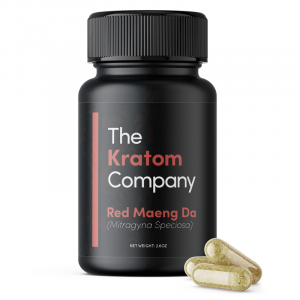 From $24.00Select options This product has multiple variants. The options may be chosen on the product page
From $24.00Select options This product has multiple variants. The options may be chosen on the product page -
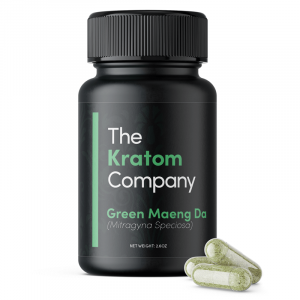 From $24.00Select options This product has multiple variants. The options may be chosen on the product page
From $24.00Select options This product has multiple variants. The options may be chosen on the product page -
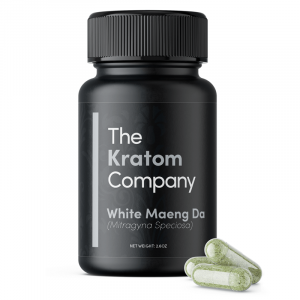 From $24.00Select options This product has multiple variants. The options may be chosen on the product page
From $24.00Select options This product has multiple variants. The options may be chosen on the product page
Explore More Posts
Product Search
Featured Products
-
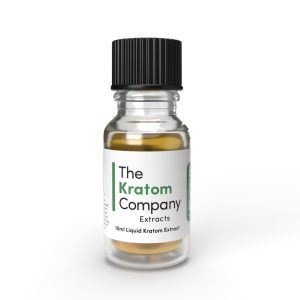 Pure Kratom Liquid Extract
Rated 4.72 out of 5From $20.00
Pure Kratom Liquid Extract
Rated 4.72 out of 5From $20.00 -
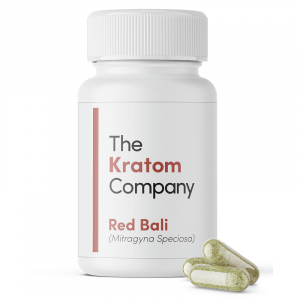 Red Vein Bali Kratom Capsules
Rated 4.70 out of 5From $24.00
Red Vein Bali Kratom Capsules
Rated 4.70 out of 5From $24.00 -
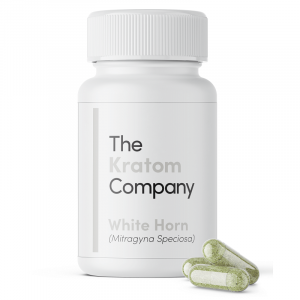 White Horn Kratom Capsules
Rated 4.88 out of 5From $24.00
White Horn Kratom Capsules
Rated 4.88 out of 5From $24.00
Follow Us
Strains
Blogs
NEWSLETTER
Sign up for our newsletter!

These statements and products presented on this website have not been evaluated by the Food and Drug Administration FDA. The products mentioned on this website are not intended to diagnose, prevent, treat or cure any diseases or health conditions. Therefore any information on this website is presented solely as the opinions of their respective authors who do not claim in any way shape or form to be medical professionals providing medical advice. The KRTM Company and its owners or employees cannot be held responsible for, and will not be liable for the inaccuracy or application of any information whatsoever herein provided. By purchasing our products you agree that you are aware and in compliance with your local county, state, or federal regulations. Must be 21 years or older to purchase Kratom. The US FDA has not approved kratom as a dietary supplement. We do not ship to the following states, cities and counties in the US where Kratom is banned: Alabama, Arkansas, Indiana, Rhode Island, Vermont, Wisconsin, Sarasota County, FL, Union County, MS, Denver, CO, San Diego, CA, and Jerseyville, IL.





